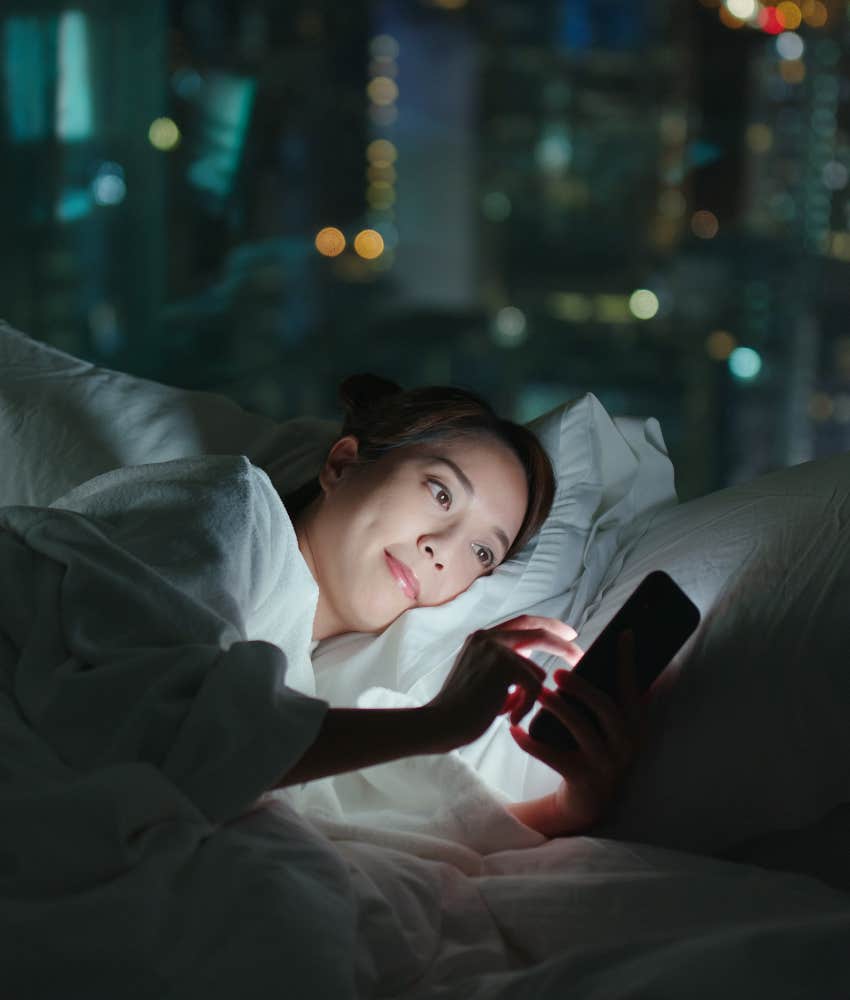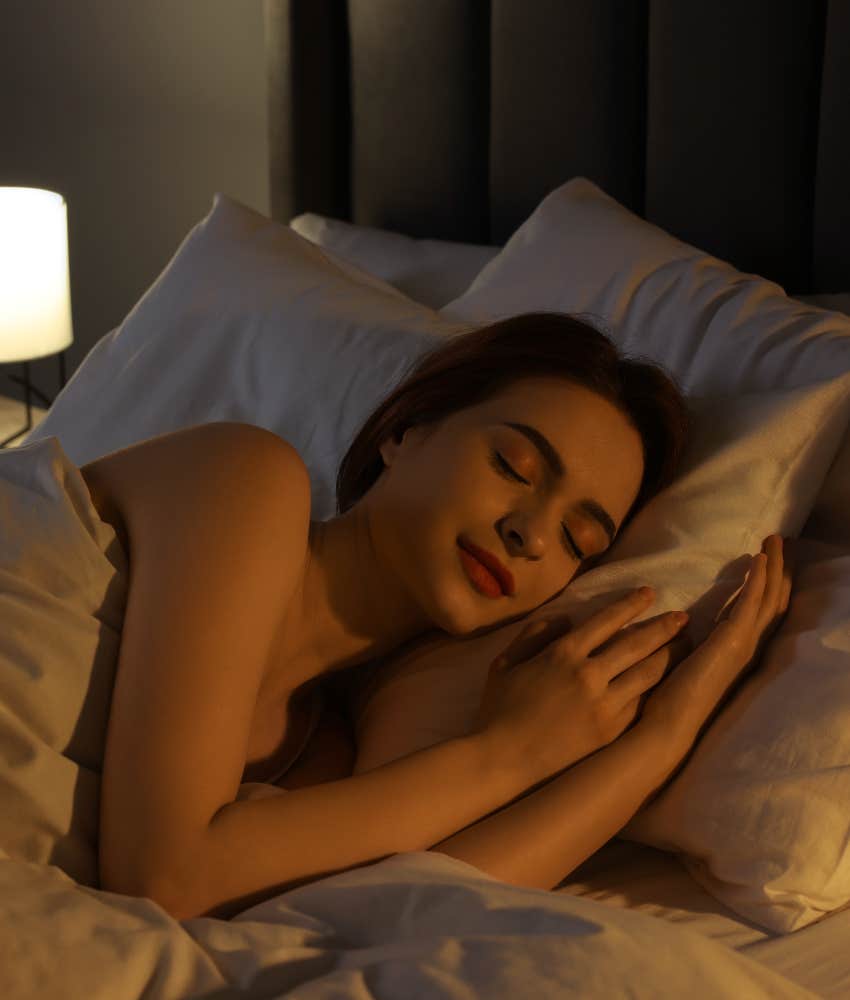People With This Specific Personality Trait Are More Likely To Have A Toxic Relationship With Their Phone, Says Study
We could all probably benefit from a tech break.
 Freeman Studio | Shutterstock
Freeman Studio | Shutterstock We're all guilty of it. Scrolling on our phones, consuming mindless entertainment. However, scientists are finding that one specific type of person may be more prone to this than others. It's the ones who stay up all night, and it can actually cause a myriad of problems, especially in young adults.
When you simply can't stop scrolling, it can be a difficult habit to break, and you may even become addicted to using your phone. The simple truth is: Night owl or early riser, we could all probably benefit from unplugging for a while.
A new study found that people who are night owls are more likely to have a toxic relationship with their phone.
Using your phone every night before bed might be more harmful than you think. Those who prefer to stay up late are more at risk of developing a problematic relationship with their phone or with social media, according to research from the University of Portsmouth and the University of Surrey in the U.K.
 leungchopan | Shutterstock
leungchopan | Shutterstock
The study was designed to explore the connection between sleep-wake rhythms and problematic technology use in young adults. Feelings of loneliness and anxiety were found to be primary factors, with young adult night owls using smartphones and social media as a coping strategy.
Dr. Anna-Stiina Wallinheimo, School of Psychology, Sport, and Health Sciences at the University of Portsmouth, explained, "Our findings point to a vicious cycle. Young adults who are naturally more active in the evening often find themselves socially out of sync, which may lead to feelings of loneliness and anxiety. Many then turn to smartphones and social media to cope, but unfortunately, these tools can make things worse, not better."
This research provided new insights into the behavior, habits, and mental health of young adults.
While researchers have known that night owls tend to be more vulnerable to developing toxic relationships with technology, Dr. Wallinheimo said they hadn't really understood why.
She noted, "Now we can see that emotional factors — especially loneliness — are playing a significant role. These young people aren't using technology just because it's available; they're using it to try to soothe emotional discomfort. The tragedy is that it often deepens their distress instead."
Sadly, the distinction between being a night owl and an early bird isn't as simple as just prioritizing a specific bedtime. It's an evolutionary biological marker that has anyone more energized during the evening hours, being forced to fit into a normal 9-to-5 schedule, and that's the crux of the health problems associated with those who prefer to stay up late.
Someone experiencing a toxic relationship with their phone or social media might use it excessively, neglect their other responsibilities, and check their notifications compulsively. It can often serve as a crutch or an escape when someone wants to avoid other things in their life.
With these findings, the researchers are calling for more efforts to support young adults' emotional well-being.
"Rather than simply telling young people to spend less time on their phones, we need to address the reasons behind their usage," said Dr. Simon Evans, from the School of Psychology at the University of Surrey. "That means providing effective strategies to manage loneliness and anxiety—particularly during late evening hours when support services are limited, and feelings of isolation can be most intense."
 New Africa | Shutterstock
New Africa | Shutterstock
Providing more education and support systems has the potential to help young adults who may not even realize that their sleep patterns put them at a higher risk for developing toxic relationships with technology.
Dr. Wallinheimo said, "Increased awareness of these underlying mechanisms could lead to far more effective interventions. If we can help young people understand that their phones and social media feeds aren't the solution to loneliness or anxiety but part of the problem, we might begin to turn the tide."
So, if you're a night owl and often find yourself scrolling socials to while away the hours, why not pick up a book instead? You'll definitely be better for it.
Kayla Asbach is a writer currently working on her bachelor's degree at the University of Central Florida. She covers relationships, psychology, self-help, pop culture, and human interest topics.

